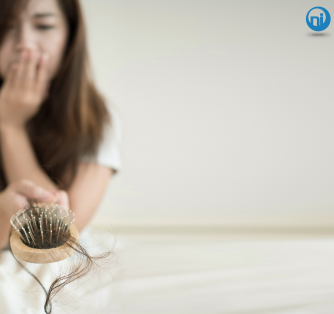Menu
Weight loss
Hormones
Sex
EXPLORE
MEET NU IMAGE MEDICAL
TREATMENTS
MEET NU IMAGE MEDICAL
TREATMENTS
MEET NU IMAGE MEDICAL
The Damage Being Done by Your Beauty Routine


The beauty industry is valued at around $532 billion and counting, making it easy to find just about any shade, color, cream, serum, or magic formula you are looking for. With so many options, how are you supposed to make the best choice? Are you searching by your budget or by your skin needs? Are you sticking with recommendations or are you branching out to try trendy new items? Trying to find the most effective product is already overwhelming, so brace yourself for the terrible reality of beauty products. Some of them, regardless of what they promise, are toxic.
Doing More Damage Than Good
While many of the ingredients in makeups, shampoos, soaps, or lotions are safe for human use, there are some ingredients that harm both your body and the environment. Unlike many governments overseas, the FDA here in the U.S. doesn’t have to approve cosmetics or other beauty supplies. Any number of chemicals can be included that will be absorbed into the skin and enter the bloodstream. You may inhale chemicals from the powders you apply or ingest them when applied on the lips. Researchers have found that health concerns like cancer, hormone disorders, neurological problems, and developmental delays have been linked to certain chemicals present in a range of beauty products used for both hair and skincare. Though it takes a little extra time when shopping, reading the ingredient labels, and finding the following components can help you preserve your skin and hair. Avoid items that contain these chemicals.
Talc
The FDA recently found that several cosmetic items tested positive for asbestos. As a result, they cautioned against using a lot of the items that contained talc. Talc itself is safe, but it could possibly be contaminated with asbestos since the two minerals are generally found naturally in the earth close together. Many manufacturers use untested talc to makeup products like bronzers, eye shadows, and blushes. It keeps the makeup from caking and gives it an opaque finish.
Triclosan
Many manufacturers will add this element to reduce the risk of bacteria contamination in a cosmetic product, more specifically in antibacterial soap, toothpaste, and body wash. The FDA has found that high levels of triclosan can negatively affect the thyroid hormones, develop antibiotic resistance in the body, and potentially increase the risk of developing skin cancer. It has been banned from products sold at Whole Foods, though Walgreens, Rite Aid, and CVS have a similar ban scheduled.
Parabens
A lot of beauty products contain parabens, since the chemical acts as a preservative. The label could contain any of the following names: methylparaben, propylparaben, ethylparaben, or butylparaben. You will often see these in hair products, shaving creams, moisturizers, and makeups. There are a number of different reasons why you should avoid this chemical. Long-term use can be damaging to your hair, creating problems with dry, brittle hair that could lead to more serious hair loss. When parabens enter the skin, it mimics a weak form of estrogen. Though weak, it can still trigger the growth of certain breast cancer cells. It can also cause an imbalance in estrogen levels which could also lead to breast cancer.
Phthalates
These chemicals are contained in some hair sprays and nail polishes, though they are also used to create the fragrances of many cosmetic and cleaning products. Within the body, phthalates can create an imbalance in hormones, especially those that are related to estrogen and testosterone. When hormone levels get out of whack, it can lead to an increased risk of cancers.
Your Safe Alternatives
It might seem that most of the products you have been using are doing more harm than good. There are safe alternatives that are just as effective, and the beauty industry has begun to take notice of the demands for more organic and natural products. Many find that the nontoxic and natural ingredient alternatives are often more expensive, but the extra cost is worth the protection to your body. Always read the labels on whatever you buy that will be going onto your hair or skin, and look up any unfamiliar ingredients to see what damage it could do. Try to choose products that short ingredient lists, and if possible, use fewer products altogether. Look carefully at a product that is marketing as “pure,” “natural,” or “organic” to make sure the ingredient list is true to the label. Homemade masks, conditioners, or moisturizers from food products like olive oil, coconut oil, avocado, lemon, green tea, or rose hips are much healthier for your whole body.
As more people become aware of the toxins in cosmetics and beauty products, more non-toxic alternatives will flood the market. Until then, do your research to make sure that what you are using isn’t hurting your skin and hair instead of helping.
Nu Image Medical® offers a new and futuristic approach to achieving optimal health and wellness. The company has been a weight loss, anti-aging and wellness provider since 2004 and offers medically supervised programs for medical weight loss, peptides, erectile dysfunction, scream cream, and hair loss (NuDew)
This article is for informational purposes only and does not constitute medical advice. The information contained herein is not a substitute for and should never be relied upon for professional medical advice. Always talk to your physician about the risks and benefits of any treatment. Nu Image Medical may not offer the medications or services mentioned in this article.
